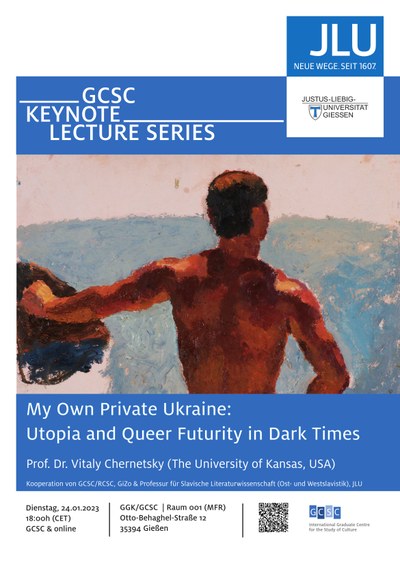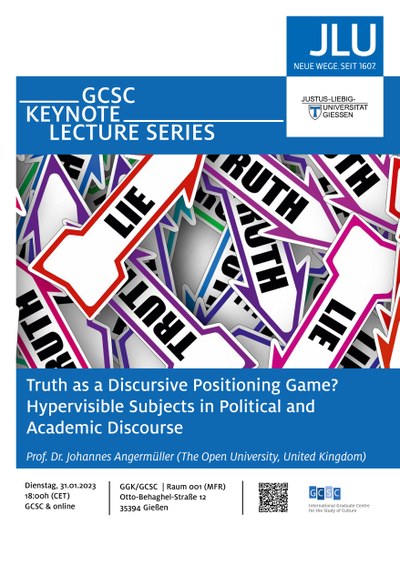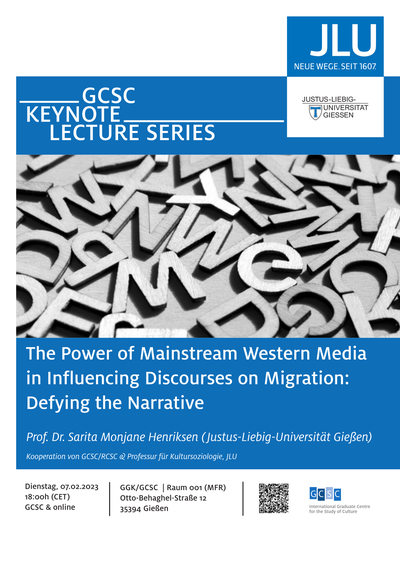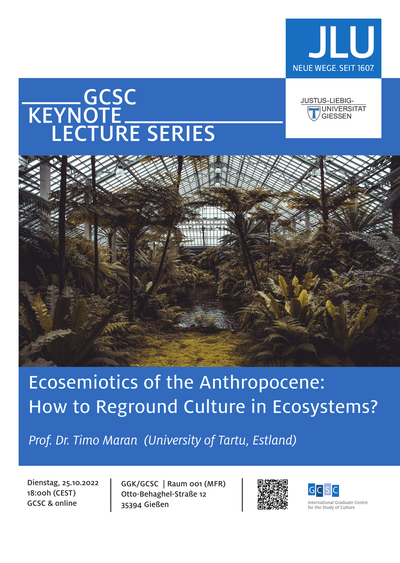WiSe 22/23
Winter Semester 2022/2023
Timo Maran (University of Tartu)
Ecosemiotics of the Anthropocene: How to Reground Culture in Ecosystems?
25.10.2022, 18:00-20:00 (CEST), GGK/GCSC (MFR) & Online (BBB)
Abstract:
From a semiotic perspective, Anthropocene manifests as a massive multiplication and spread of abstract symbols that lack referential connections with biological and material processes. Such growth of symbols is anti-ecological because of the large amounts of matter and energy required to produce and upkeep various media and artifacts that embody signs. As symbols are signs based on human conventions, they cannot relate directly to changes in environmental and ecological processes (described as dissent by David Low 2009). It is the degradation of the object in the sign that is characteristic of the Anthropocene semiosis.
In the biological realm, organisms rely on the presence of objects (such as environmental constraints, ecosystem properties, and resources). Anthropologists Eduardo Kohn (2013) and Andrew Whitehouse (2015) have proposed the concept of semiotic ground to denote the semiotic basis of the ecosystem. The semiotic ground can be described as a tissue consisting of iconic and indexical signs that retain connection between object and interpretation and, accordingly, between material and semiotic realms. The semiotic ground is a semiotic system shared by human and non-human species alike.
We should find ways to reground human culture, that is, reestablish the connection between the human symbolic sphere and ecosystems. Juri Lotman’s concept of semiosphere (the entirety of culture) could be reinterpreted here as the ecosemiosphere. This would be a semiotic sphere comprising all species and their umwelts, alongside the diverse semiotic relations (including humans with their culture) that they have in the given ecosystem, and also the material supporting structures that enable the ecosemiosphere to thrive (Maran 2020; 2021). Means for moving towards more ecological culture are revising the existing cultural models of nature, emphasizing the role of iconic and indexical semiosis, and fostering connectivity and dialogue between semiotic processes of different complexity.

Florian Mussgnug (University College London, UK & University of Heidelberg, GER)
Transhistorical Speculative Fiction and the (Post-)Apocalyptic Anthropocene
06.12.2022, 18:00-20:00 (CET), GGK/GCSC (MFR)
Abstract: Apocalyptic thinking is often described as reactionary or escapist. In this lecture, we will encounter a radically different, imaginative and progressive attitude towards the end of (the) world(s). Contemporary speculative fiction from Argentina, UK, Canada, Italy, USA, Australia, Norway, the Dominican Republic, and Zambia will provide us with examples of an apocalyptic imagination that is post-anthropocetric, critical and creative, situated and relational: a stance which preserves the ethical and political urgency of religious millennialism, but views apocalypse not as an unspeakable end-to-come. Instead, apocalypse becomes a dynamic marker of the fundamental unpredictability of post-holocenic societies and ecologies. As we will see, this idea of the apocalyptic runs counter to Eurocentric, teleological narratives of the modern emergence of the global. It seeks to revitalize and reformulate the bonds between constellations that are frequently cast as disconnected and incompatible totalities: past, present, and future; the global and the local; human and nonhuman nature. In this way, transhistorical speculative fiction holds the power to disrupt the knowledge practices and imaginative frameworks of anthropocentric mastery and to inspire new forms of aesthetic and political recalcitrance.

Prof. Vitaly Chernetsky (University of Kansas, USA)
My Own Private Ukraine: Utopia and Queer Futurity in Dark Times
24.01.2023, 18:00-20:00 (CET), GGK/GCSC (MFR)
Abstract: Engaging with the thought of queer theorists José Esteban Muñoz, Eve Kosofsky Sedgwick, and Michael Snedicker, as well as Ukrainian feminist literary scholar Solomia Pavlychko, this talk explores the expressions of queer desire and utopian hope in Ukrainian literature and film, seeking sources for perseverance and optimism in the dark times of the current war. From the pioneering articulations of queerness in the texts of Olha Kobylians’ka and Ahatanhel Kryms’kyi in the 1890s through the late-modernist explorations by V. Domontovych and Emma Andiievs’ka and developing further in the work of contemporary authors in prose, poetry, and film, it seeks to uncover and trace a persistent utopian impulse that survived and regrew despite the lengthy history of repression, violence, and trauma.

Truth as a Discursive Positioning Game? Hypervisible Subjects in Political and Academic Discourse
31.01.2023, 18:00-20:00 (CET), GGK/GCSC (MFR)
Abstract: Struggles over truth and post-truth are at the heart and centre of contemporary political discourse. How do we as discourse analysts position ourselves vis-à-vis the truth and post-truth of discourse? I will take my point of departure from the Strong Programme in Discourse Studies, which makes the case for epistemological symmetry between truths and post-truths: if post-truths (of others) can be accounted for in discursive terms, then we should also be able to explain our (scientific) truths in the same way. Against this philosophical background, I will suggest an analysis of political and scientific discourses that both are organised around few but hypervisible subject positions. If both truth and post-truth discourses are a product of the monopolization of visibility in discourse, how can we account for the many discourse participants who remain invisible and unheard? And more importantly, if truths are discursively constructed just as post-truths, how can we keep criticising post-truths in the name of truth? In this talk, I will invite you to take a resolutely discursive perspective on the ongoing controversies around populism without giving in to the populist idea that truth and post-truth are all “nothing but discursive constructions”.

The Power of Mainstream Western Media in Influencing Discourses on Migration: Defying the Narrative
07.02.2023, 18:00-20:00 (CET), GGK/GCSC (MFR)
Abstract: This paper attempts to contribute to the transdisciplinary study of migration, mainly from a sociolinguistic perspective, and with factual evidence, it intends to challenge the narrative that the bulk of international migrations are south-north, and across oceans. The paper pinpoints that south-south migrations, in fact, are quite significant and that migrants are moving across land borders in the global south. By bringing together three different subject areas, namely, language policy and education planning, refugee and immigration studies, and translation and interpreting studies, the paper highlights the importance that the language factor plays in shaping society’s views, perceptions and understandings of migration processes, patterns, trends, figures, and related consequences. The paper argues that the key role played by language in migration studies, can be seen from a variety of lenses, such as, in documenting and reporting occurring migration phenomena, in resorting to translation and/or interpretation in order to breach the communication gap between migrants and the host country authorities (be it the court, police, immigration and/or health services), in facilitating access to the education system, as well as in determining whether persons in mobility will be granted the possibility to stay, and be integrated as active citizens of the host societies.

